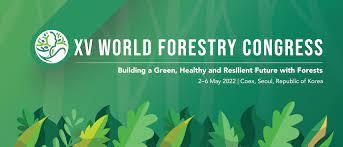
https://wfc2021korea.org/sub01/overview.html
WFC 2021
The Congress will bring together global forest stakeholders to review and analyze key challenges facing the sector and ways to address these. Participation is usually diverse, with representation from all regions and sectors; including the public and private sector, NGOs, CSOs, scientific or professional bodies, and forestry societies, as well as those who simply care about forests and the environment.
The WFC 2021 will provide a unique opportunity for the global forestry community to consider the state and future of world forestry, particularly in the context of the recovery from the COVID-19 pandemic, while striving to achieve the Sustainable Development Goals. The Congress will focus on defining the role of forests in the global developmental agenda (2030 Agenda) and other major agreements (Global Forest Goals, Paris Agreement, post-2020 global biodiversity framework) and identify key measures that must be put in place as the forest sector adjusts to the new reality and aims to help ‘build back better’. Forests must be an integral part of discussions and decisions to be made on sustainable development, because this will determine the health, wellbeing and stability of the planet and the people.
Historical Context
The World Forestry Congress is held approximately once every six years. The first Congress was held in Italy in 1926. FAO has helped host countries organize the Congress since 1954. Responsibility for the organization and financing of each Congress lies with the host country.
For information on past Congresses can be found here.
The Congress is a forum for the exchange of views and experiences on all aspects of forests and forestry, which may lead to the formulation of broad recommendations applicable at national, regional and global levels. The Congress also provides a periodical opportunity to produce an overview of the sector, in order to discern trends, adapt policies, create awareness in decision-makers, and influence public opinion. Given the high number of participants (several thousands in each conference), it is a valuable forum for strengthening the role of forests in general as well as in the context of critical environmental, economic and social issues and taking into account the developments in the global sustainable development agenda.
The Congress is not an intergovernmental meeting; it has no formal constituencies nor country delegations. The implementation of recommendations is a matter for those to whom these are addressed – stakeholders like governments, international organizations, scientific bodies, forest owners, among others – in the light of their own particular circumstances.
Exchanges of knowledge within the forest sector, and between the forest sector and other sectors, benefit all countries. The diffusion of scientific and technical advances as well as the human contacts promoted by these congresses contribute to a better global understanding of the sector.










Add new comment